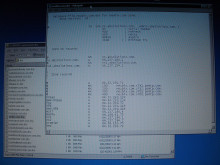Trojan appears that leverages patched Microsoft Office flaw
Researchers at Symantec said they have spotted a trojan taking advantage of a previously patched Microsoft Office vulnerability.
The exploit, which is being used in targeted attacks, arrives as an email that contains a Microsoft Word file and a separate DLL file, a rare combination considering DLL files are not typically sent over email.













































































